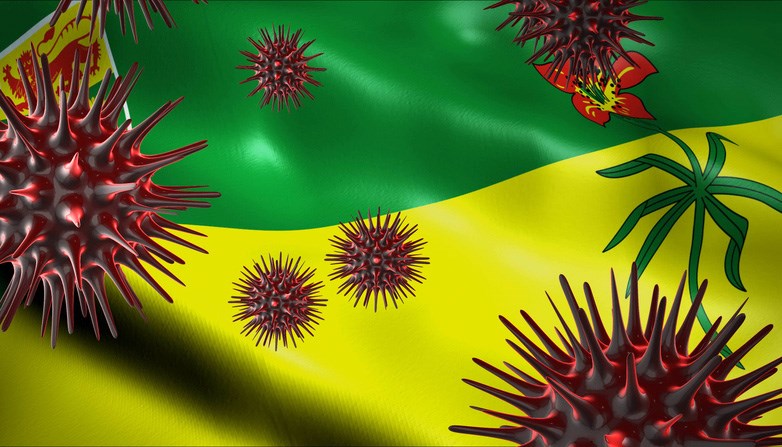REGINA - As the high efficacy of vaccines drives the return to normal life within Saskatchewan, we know that COVID-19 will continue to circulate, particularly amongst the unvaccinated, as virus transmission turns to endemic. Today, the Government of Saskatchewan is updating the long-term precautions that will be in place in Saskatchewan as we continue the transition to normal life. The goal of these recommendations is to limit the spread of COVID-19 without imposing widespread public health orders and restrictions as was necessary before vaccines were widely available.
Get Vaccinated
Getting vaccinated remains the most important step you can take to protect yourself and keep Saskatchewan safe. New COVID cases in Saskatchewan and serious outcomes from those cases are now overwhelmingly among unvaccinated individuals. Vaccines are now widely accessible in every part of the province, so if you haven't done so already, get vaccinated.
Contact tracing, testing and self-isolation
Throughout the COVID-19 pandemic, Saskatchewan maintained a robust contact-tracing system, paired with universal testing for both symptomatic and asymptomatic individuals. As the spread of COVID-19 continues primarily amongst unvaccinated residents, Saskatchewan will continue to rely on this robust system, along with continuing the practice of universally available and easily accessible testing for COVID-19. Since the removal of public health orders on July 11th, contact tracers have continued to provide direction to individuals that have tested positive for COVID-19 to self-isolate immediately at home or in another suitable environment for at least 10 days. This direction has been enforceable by orders under the Public Health Act in situations where individuals do not comply with the direction to self-isolate.
Saskatchewan is developing a rapid test self-administration pilot to gauge the demand and uptake for self-administered rapid tests for families who may wish to screen for COVID-19 on an ongoing basis. The pilot program would see rapid tests provided to families through their schools, along with instructional information on how to properly self-administer the rapid tests. Information regarding the rapid test self-administration pilot for families will soon be provided to school divisions for distribution to families. It is anticipated that rapid tests for the pilot program will be allocated to areas of the province where COVID transmission is highest. While the recommendation to seek testing and stay home at the first-sign of any symptoms will continue, the pilot rapid testing program is intended to gauge public uptake of the use of rapid tests as a self-administered asymptomatic screening tool.
Guidance to School Divisions as children return to schools, vaccination of children turning 12
As children of all ages return to school, the Government of Saskatchewan is providing Saskatchewan school divisions with guidance on masking and case identification.
At this point in time, there are no COVID-19 vaccines approved for children under 12. All residents 12+ are encouraged to be fully vaccinated to afford these groups the best circle of protection possible. It is recommended that children under the age of 12, unvaccinated teachers and unvaccinated support staff wear masks in common spaces such as hallways, washrooms, lunch rooms, libraries and school buses. Once students are seated in their classrooms, it is appropriate to remove masks. For outdoor activities such as recess or outdoor gym classes, there is no recommendation for students to mask. Once vaccines are approved and widely available to children under the age of 12, recommendations regarding masking and other measures in schools will be revisited to factor in increased immunity within the student population.
When cases are identified in schools, schools and school divisions will continue to be notified by public health officials in order to inform students and parents. Contact tracing will continue to occur, and unvaccinated close contacts may be directed to self-isolate as deemed appropriate by public health.
The Saskatchewan Health Authority will also offer school-based vaccination clinics similar to those offered at the end of the last school year. These clinics will enhance vaccine accessibility for those students or staff who have not been vaccinated, or who have only been vaccinated with a single dose.
As an additional measure to increase the reach of vaccinations, any individuals turning 12 in the current year are immediately eligible for the COVID-19 vaccination. This means that individuals born in 2009 can now be vaccinated, regardless of their birth date, at any COVID-19 vaccination site, including pop-up clinics, participating pharmacies, or school-based vaccination clinics.
Development of a standing COVID-19 vaccination plan
Throughout the initial campaign to deliver the COVID-19 vaccine to Saskatchewan residents, Saskatchewan had one of the most efficient vaccination campaigns in the country. This effort has now concluded as mass-vaccination efforts shift to targeted vaccinations.
In anticipation of future guidance on "booster shots" to maximize the efficacy of the COVID-19 vaccine, the Ministry of Health in conjunction with the Saskatchewan Health Authority will begin work immediately to establish a standing COVID-19 vaccination plan, with the goal of having the most efficient vaccination plan in Canada. The vaccination plan will be adaptable to factor in guidance surrounding booster shots, including whether booster vaccines will be delivered annually or as otherwise recommended, much like the annual flu shot campaign which has been operating effectively in Saskatchewan for many years.
Saskatchewan's COVID-19 vaccination plan will draw from the success of Saskatchewan's initial mass-vaccination effort in order to build a standing plan that the health system is ready to enact if and when booster shots are recommended and provided. Considerations in the development of this plan will include population priority sequencing, mass-vaccination venues, and anticipated vaccination timelines dependent on the volume of vaccines received.


